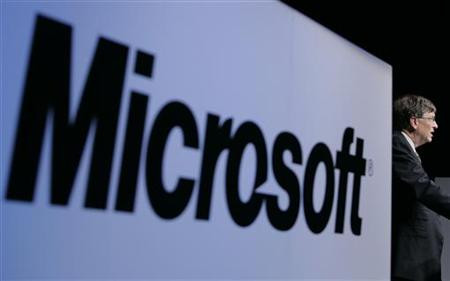Microsoft chip in on cybersecurity debate

In the wake of Sony's recent PSN disaster and the U.K. Government's increasing emphasis on the topic, Microsoft took the opportunity to add its two-cents on the question of cyber attacks at this year's Global Cybersecurity Summit.
At the summit in London, the company outlined its belief that the world as a whole needed to create a stable model and united approach to manage the growing number of cyber threats facing wider-industry, governments and the general populace.
In a statement released by Microsoft earlier today, the company highlighted the growing threat cyber crime poses commenting, "In the shared and integrated domain of the Internet, organizations, governments and consumers face a myriad of threats that are technically advanced, persistent, well-funded and motivated by profit or strategic advantage.
"Many industries and corporations, including Microsoft, are investing in international collaborative efforts to help protect all users from the rapidly-changing threat landscape."
Microsoft warned that under the current model, where there is no collective or unified response model or approach to dealing with cyber-crime, the world has been left vulnerable.
"There is currently no global, coordinated approach to protecting people from the potential dangers of the Internet. The growing dependence on the Internet - with users numbering 2 billion globally - makes reliability of the infrastructure more important than ever."
Building on this, Microsoft outlined several key elements and changes it believed needed to be made to ensure the world's cybersafety.
Chief among these was a call for a "collective action to improve global internet health". This idea was given last year by Scott Charney, Microsoft's corporate vice president for Trustworthy Computing, in his white paper Collective Defence recommendations.
Charney commented, "A public health model can empower consumers and improve Internet security.
"Microsoft is collaborating with industry and governments around the world to take action now by adopting a public health model for the Internet to protect users from threats worldwide."
The statement introduced the idea of a collective concept of "Internet Health". In order to help create this, Microsoft and its new batch of partners from the summit pledged to examine, "the state of current efforts, diagnose major obstacles and work together to identify key political, economic, social and technical milestones necessary to accelerate international progress toward a healthier and safer ecosystem."
The company confirmed that it expected to have a list of its findings published later this year.
In addition, in its time at the summit Microsoft revealed that many of its "senior experts" were already participating in research with several collective "cybersecurity breakthrough groups" to find ways of:
- Measuring the cybersecurity problem.
- Protecting youth -- building a global culture of digital citizenship.
- Dealing with the entanglement of protected entities in cyberspace.
- Establishing a universal cyberconflict policy and a system of worldwide cyber-response coordination.
The summit also saw a call for the creation of a trusted supply chain. This would involve an increase in the transparency and amount of information available between companies and governments, thus increasing cross company trust levels.
"Industry needs to work cooperatively to create a consistent, transparent and stable approach across borders in an effort to preserve the benefits of open and free global trade.
"The diversity of suppliers and the complexity of many products make managing cybersupply chain risk particularly challenging, but not insurmountable. Governments need to re-examine their understanding of cyber supply chain risk, recognize it as a shared problem that all countries must now confront, and seek solutions that build bridges rather than exclusionary trade walls."
The company gave no clear specifics about how it planned to see these recommendations implemented and no government body has yet released a statement commenting on the company's comments.
© Copyright IBTimes 2025. All rights reserved.





















